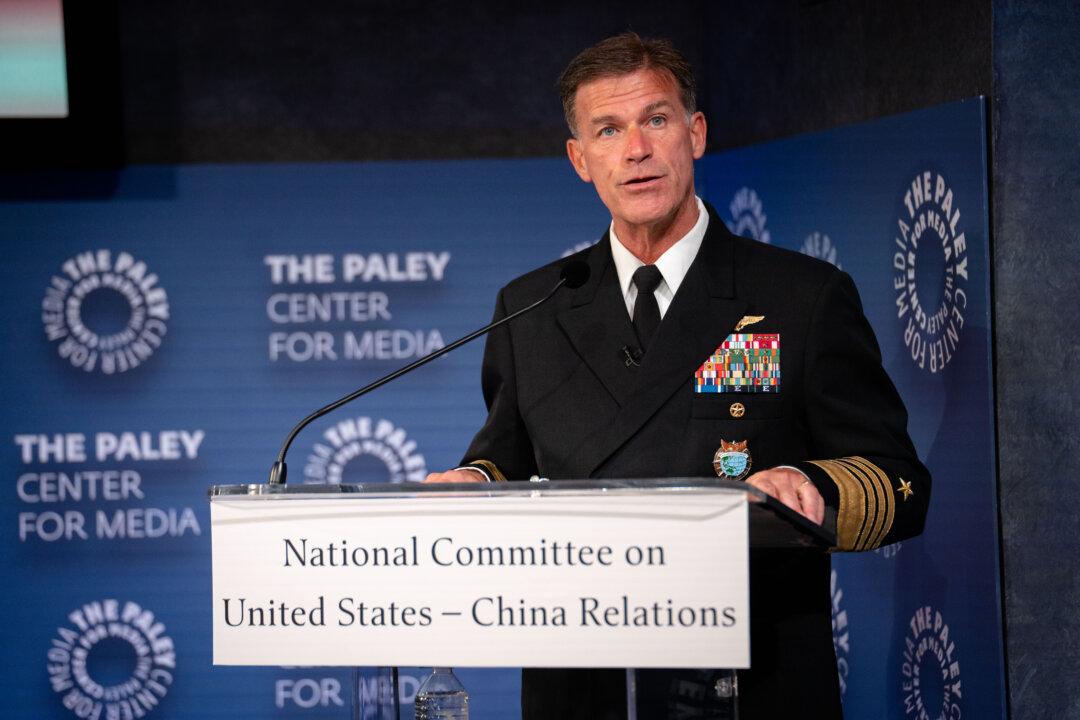China’s communist regime is building its military arsenal for a potential invasion of Taiwan in 2027, according to Adm. John Aquilino, commander of the U.S. Indo-Pacific Command.
He told the Senate Armed Services Committee on March 21 that the regime has continued an “aggressive military building” of its People’s Liberation Army (PLA) with the desire to “oppress those who believe in a free and open Indo-Pacific,” according to his written testimony.





